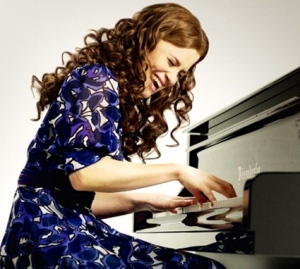Stories of 19th Century slavery are usually set in the American Deep South, but Matilda Ibini’s new play serves to remind us of British involvement, not only as traders, but as slave owners in overseas plantations. Her play is set in Barbados in 1808 and centres on Kitty, the subservient wife of an unseen landowner, and three of her husband’s slaves – Asa (Alexander Kiffin), a loyal, obedient servant who was probably fathered by his master, the rebellious Elsie (Damilola K Fashola) and Willa (Sophia Mackay), a precocious 12-year-old. Three superb performances in these roles, rich with human dignity, bring out all the slaves’ suffering and suppressed anger. Kitty is an ambiguous character – at one moment a kindly guardian to the slaves, at the next a cruel mistress – and, not helped by some stilted dialogue, Clemmie Reynolds often struggles to make the transitions convincing. Ibini seems intent on pointing a finger of blame for slavery towards the Church by introducing the character of Parson Lucy, a vociferous advocate of unenlightened Christianity and bogus science who is inclined to quote from the Old Testament and whack slaves with his Bible. However, she makes a cleverer move by keeping the slave master offstage, whilst ensuring that his menace is felt constantly. As described, he is a stereotypical tyrant and his appearance could have cheapened the drama and robbed the play of much of its subtlety. Directed by Sophie DeVries and Clemmie Reynolds, Act I of this production is atmospheric and haunting; Sophia Simensky’s claustrophobic set evokes the play’s steamy West Indian setting and lovely choral music, composed by James Reynolds, creates a melancholic air, consistent with the themes of lives being abused and wasted. By showing that Kitty is herself enslaved and then suggesting that she and the three black slaves might find emancipation through each other, Ibini seems to be taking the play in an interesting direction. But then, in a terrible second act dominated by hysterical melodrama, the play goes nowhere and much of the earlier good work is thrown away. The gravity of the play’s themes places a responsibility on this company to ensure that their production never becomes risible, as often happens in Act II. The chief culprit seems to be Adam Morris who plays Parson Lucy like a pantomime villain, but the character is crudely written and the joint directors must also be blamed for not reining in the excesses. The point that slavery is an inhuman abomination is made most powerfully in this play when it is understated, but, once the play’s purpose becomes merely to demonstrate graphically the extremes of the brutality which results from slavery, then its power is diminished. This production is beginning a long tour, culminating at the Edinburgh Fringe Festival in August. The company has time to work on current flaws and, judging from the quality of much of Act I, they are well capable of making improvements.
Performance date: 26 February 2015










